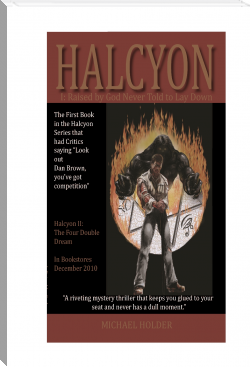Crisis Management: Beyond the Call of Duty by Craig A. McDonough (best inspirational books .txt) 📕

- Author: Craig A. McDonough
- Performer: -
Book online «Crisis Management: Beyond the Call of Duty by Craig A. McDonough (best inspirational books .txt) 📕». Author Craig A. McDonough
41. Wen Hsien T’ung K’ao, ch. 221.
42. It is interesting to note that M. Pelliot has recently discovered chapters 1, 4 and 5 of this lost work in the "Grottos of the Thousand Buddhas." See B.E.F.E.O., t. VIII, nos. 3-4, p. 525.
43. The Hsia, the Shang and the Chou. Although the last-named was nominally existent in Sun Tzŭ’s day, it retained hardly a vestige of power, and the old military organization had practically gone by the board. I can suggest no other explanation of the passage.
44. See Chou Li, xxix. 6-10.
45. T’ung K’ao, ch. 221.
46. This appears to be still extant. See Wylie’s "Notes," p. 91 (new edition).
47. T’ung K’ao, loc. cit.
48. A notable person in his day. His biography is given in the San Kuo Chih, ch. 10.
49. See XI. § 58, note.
50. Hou Han Shu, ch. 17 ad init.
51. San Kuo Chih, ch. 54.
52. Sung Shih, ch. 365 ad init.
53. The few Europeans who have yet had an opportunity of acquainting themselves with Sun Tzŭ are not behindhand in their praise. In this connection, I may perhaps be excused for quoting from a letter from Lord Roberts, to whom the sheets of the present work were submitted previous to publication: "Many of Sun Wu’s maxims are perfectly applicable to the present day, and no. 11 [in Chapter VIII] is one that the people of this country would do well to take to heart."
54. Ch. 140.
55. See IV. § 3.
56. The allusion may be to Mencius VI. 2. ix. 2.
57. The Tso Chuan.
58. Shih Chi, ch. 25, fol. I.
59. Cf. Shih Chi, ch 47.
60. See Shu Ching, preface § 55.
61. See Shih Chi, ch. 47.
62. Lun Yu, XV. 1.
63. I failed to trace this utterance.
64. Supra.
65. Supra.
66. The other four being worship, mourning, entertainment of guests, and festive rites. See Shu Ching, ii. 1. III. 8, and Chou Li, IX. fol. 49.
67. See XIII. § 11, note.
68. This is a rather obscure allusion to the Tso Chuan, where Tzŭ-ch’an says: "If you have a piece of beautiful brocade, you will not employ a mere learner to make it up."
69. Cf. Tao Te Ching, ch. 31.
70. Sun Hsing-yen might have quoted Confucius again. See Lun Yu, XIII. 29, 30.
71. Better known as Hsiang Yu [233-202 B.C.].
72. Shih Chi, ch. 47.
73. Shih Chi, ch. 38.
74. See XIII. § 27, note. Further details on T’ai Kung will be found in the Shih Chi, ch. 32 ad init. Besides the tradition which makes him a former minister of Chou Hsin, two other accounts of him are there given, according to which he would appear to have been first raised from a humble private station by Wen Wang.
[Ts’ao Kung, in defining the meaning of the Chinese for the title of this chapter, says it refers to the deliberations in the temple selected by the general for his temporary use, or as we should say, in his tent. See. § 26.]
1. Sun Tzŭ said: The art of war is of vital importance to the State.
2. It is a matter of life and death, a road either to safety or to ruin. Hence it is a subject of inquiry which can on no account be neglected.
3. The art of war, then, is governed by five constant factors, to be taken into account in one’s deliberations, when seeking to determine the conditions obtaining in the field.
4. These are: (1) The Moral Law; (2) Heaven; (3) Earth; (4) The Commander; (5) Method and discipline.
[It appears from what follows that Sun Tzŭ means by "Moral Law" a principle of harmony, not unlike the Tao of Lao Tzŭ in its moral aspect. One might be tempted to render it by "morale," were it not considered as an attribute of the ruler in § 13.]
5, 6. The Moral Law causes the people to be in complete accord with their ruler, so that they will follow him regardless of their lives, undismayed by any danger.
[Tu Yu quotes Wang Tzŭ as saying: "Without constant practice, the officers will be nervous and undecided when mustering for battle; without constant practice, the general will be wavering and irresolute when the crisis is at hand."]
7. Heaven signifies night and day, cold and heat, times and seasons.
[The commentators, I think, make an unnecessary mystery of two words here. Meng Shih refers to "the hard and the soft, waxing and waning" of Heaven. Wang Hsi, however, may be right in saying that what is meant is "the general economy of Heaven," including the five elements, the four seasons, wind and clouds, and other phenomena.]
8. Earth comprises distances, great and small; danger and security; open ground and narrow passes; the chances of life and death.
9. The Commander stands for the virtues of wisdom, sincerity, benevolence, courage and strictness.
[The five cardinal virtues of the Chinese are (1) humanity or benevolence; (2) uprightness of mind; (3) self-respect, self-control, or "proper feeling;" (4) wisdom; (5) sincerity or good faith. Here "wisdom" and "sincerity" are put before "humanity or benevolence," and the two military virtues of "courage" and "strictness" substituted for "uprightness of mind" and "self-respect, self-control, or ‘proper feeling.’"]
10. By Method and discipline are to be understood the marshalling of the army in its proper subdivisions, the gradations of rank among the officers, the maintenance of roads by which supplies may reach the army, and the control of military expenditure.
11. These five heads should be familiar to every general: he who knows them will be victorious; he who knows them not will fail.
12. Therefore, in your deliberations, when seeking to determine the military conditions, let them be made the basis of a comparison, in this wise:—
13. (1) Which of the two sovereigns is imbued with the Moral law?
[I.e., "is in harmony with his subjects." Cf. § 5.]
(2) Which of the two generals has most ability?
(3) With whom lie the advantages derived from Heaven and Earth?
[See §§ 7, 8]
(4) On which side is discipline most rigorously enforced?
[Tu Mu alludes to the remarkable story of Ts’ao Ts’ao (A.D. 155-220), who was such a strict disciplinarian that once, in accordance with his own severe regulations against injury to standing crops, he condemned himself to death for having allowed his horse to shy into a field of corn! However, in lieu of losing his head, he was persuaded to satisfy his sense of justice by cutting off his hair. Ts’ao Ts’ao’s own comment on the present passage is characteristically curt: "when you lay down a law, see that it is not disobeyed; if it is disobeyed the offender must be put to death."]
(5) Which army is the stronger?
[Morally as well as physically. As Mei Yao-ch’en puts it, freely rendered, "esprit de corps and ‘big battalions.’"]
(6) On which side are officers and men more highly trained?
[Tu Yu quotes Wang Tzŭ as saying: "Without constant practice, the officers will be nervous and undecided when mustering for battle; without constant practice, the general will be wavering and irresolute when the crisis is at hand."]
(7) In which army is there the greater constancy both in reward and punishment?
[On which side is there the most absolute certainty that merit will be properly rewarded and misdeeds summarily punished?]
14. By means of these seven considerations I can forecast victory or defeat.
15. The general that hearkens to my counsel and acts upon it, will conquer:—let such a one be retained in command! The general that hearkens not to my counsel nor acts upon it, will suffer defeat:—let such a one be dismissed!
[The form of this paragraph reminds us that Sun Tzŭ’s treatise was composed expressly for the benefit of his patron Ho Lu, king of the Wu State.]
16. While heeding the profit of my counsel, avail yourself also of any helpful circumstances over and beyond the ordinary rules.
17. According as circumstances are favourable, one should modify one’s plans.
[Sun Tzŭ, as a practical soldier, will have none of the "bookish theoric." He cautions us here not to pin our faith to abstract principles; "for," as Chang Yu puts it, "while the main laws of strategy can be stated clearly enough for the benefit of all and sundry, you must be guided by the actions of the enemy in attempting to secure a favourable position in actual warfare." On the eve of the battle of Waterloo, Lord Uxbridge, commanding the cavalry, went to the Duke of Wellington in order to learn what his plans and calculations were for the morrow, because, as he explained, he might suddenly find himself Commander-in-chief and would be unable to frame new plans in a critical moment. The Duke listened quietly and then said: "Who will attack the first tomorrow—I or Bonaparte?" "Bonaparte," replied Lord Uxbridge. "Well," continued the Duke, "Bonaparte has not given me any idea of his projects; and as my plans will depend upon his, how can you expect me to tell you what mine are?" [1] ]
18. All warfare is based on deception.
[The truth of this pithy and profound saying will be admitted by every soldier. Col. Henderson tells us that Wellington, great in so many military qualities, was especially distinguished by "the extraordinary skill with which he concealed his movements and deceived both friend and foe."]
19. Hence, when able to attack, we must seem unable; when using our forces, we must seem inactive; when we are near, we must make the enemy believe we are far away; when far away, we must make him believe we are near.
20. Hold out baits to entice the enemy. Feign disorder, and crush him.
[All commentators, except Chang Yu, say, "When he is in disorder, crush him." It is more natural to suppose that Sun Tzŭ is still illustrating the uses of deception in war.]
21. If he is secure at all points, be prepared for him. If he is in superior strength, evade him.
22. If your opponent is of choleric temper, seek to irritate him. Pretend to be weak, that he may grow arrogant.
[Wang Tzŭ, quoted by Tu Yu, says that the good tactician plays with his adversary as a cat plays with a mouse, first feigning weakness and immobility, and then suddenly pouncing upon him.]
23. If he is taking his ease, give him no rest.
[This is probably the meaning though Mei Yao-ch’en has the note: "while we are taking our ease, wait for the enemy to tire himself out." The Yu Lan has "Lure him on and tire him out."]
If his forces are united, separate them.
[Less plausible is the interpretation favoured by most of the commentators: "If sovereign and subject are in accord, put division between them."]
24. Attack him where he is unprepared, appear where you are not expected.
25. These military devices, leading to victory, must not be divulged beforehand.
26. Now the general who wins a battle makes many calculations in his temple ere the battle is fought.
[Chang Yu tells us that in ancient times it was customary for a temple to be set apart for the use of a general who was about to take the field, in order that he might there elaborate his plan of campaign.]
The general who loses a battle makes but few calculations beforehand. Thus do many calculations lead to victory, and few calculations to defeat: how much more no calculation at all! It is by attention to this point that I can foresee who is likely to win or lose.
[1] "Words on Wellington," by Sir. W. Fraser.
[Ts’ao Kung has the note: "He who wishes to fight must first count the cost," which prepares us for the discovery that the subject of the chapter is not what we might expect from the title, but is primarily a consideration of ways and means.]
1. Sun Tzŭ said: In the operations of war, where there are in the field a thousand swift chariots,





Comments (0)